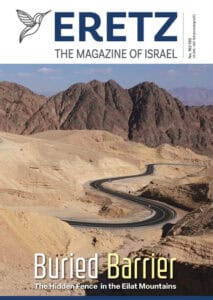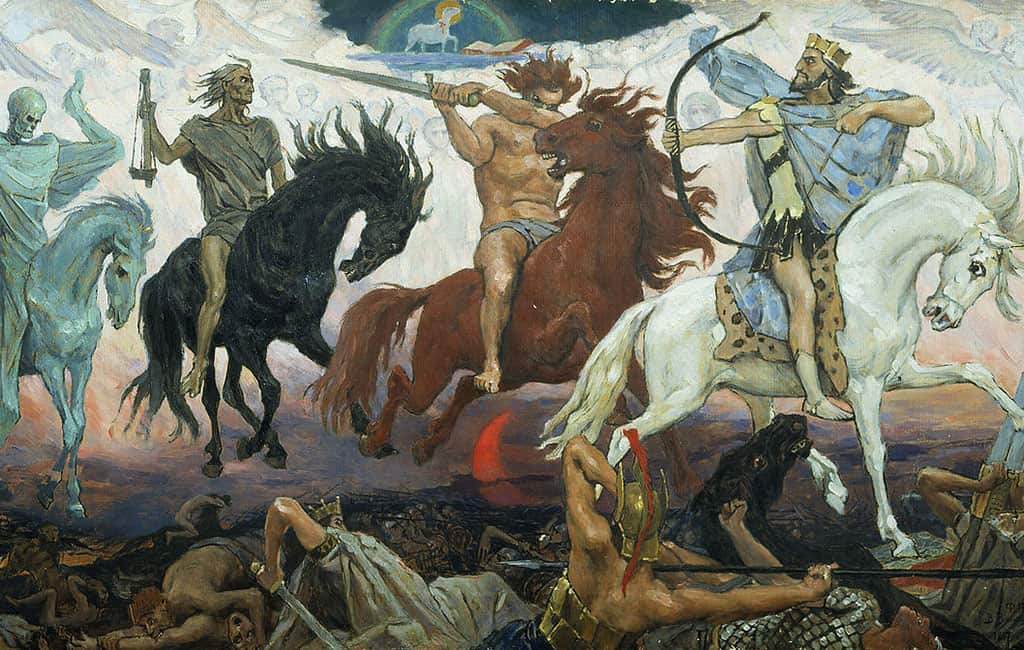
Josiah, the King of Judah, initiated a massive reform for return to the true worship of God. However, his piety was not enough to save him when he set out to meet the Pharaoh. The prophet Jeremiah’s Righteous King Josiah, died at Megiddo. The tragic death of the King transformed Megiddo into the site of the apocalyptical battle of good against evil, at the end of days when God will open the seven seals of the scroll in his right hand – the battle at Har Magedon – Armageddon.
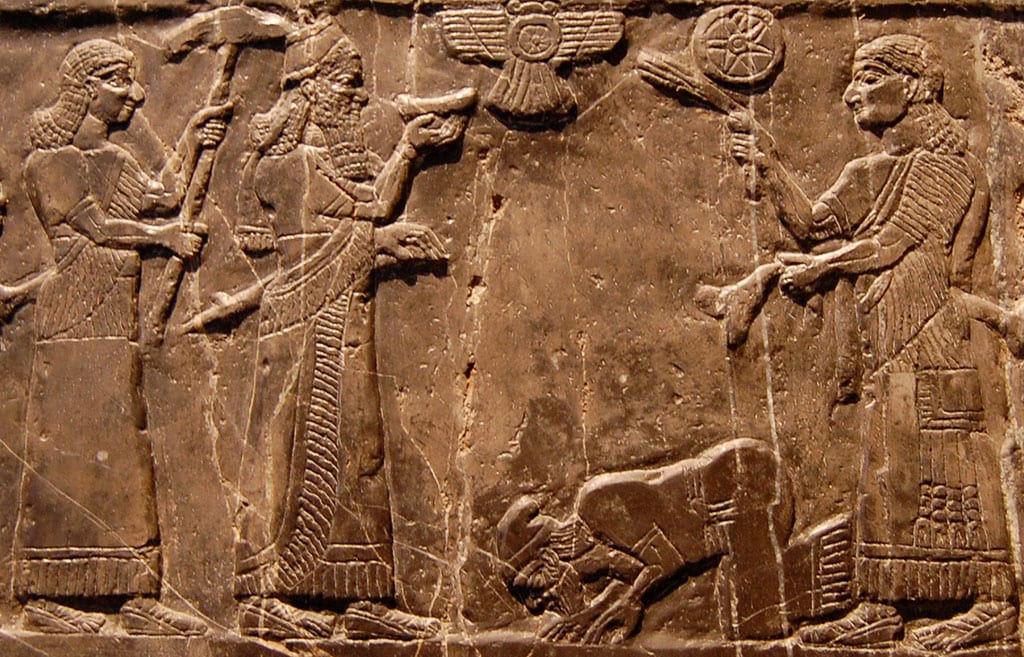
For nearly two centuries, the expansive Assyrian Empire ruled the ancient world. From Syria and Iraq, its armies reached down into Egypt and stretched up into Iran. For the first time in history, the entire Fertile Crescent was controlled by one empire.
After establishing control over the areas of the Tigris and Euphrates rivers, modern Iraq, southern Turkey, and Iran, the new Assyrian King Shalmaneser III (858-824 BCE) took the world’s best trained and well-organized army, armed for the first time with iron weapons, chariots, and battering rams, to expand the empire to the west. Opposing him, and well prepared for the Assyrian attack, were 12 monarchs of the “Kingdoms of the Sea,” led by Hadadezer King of the Aramean kingdom of Damascus. One of the twelve was Ahab, King of Israel.
Shalmaneser claimed victory: “These twelve kings he brought to his support, to offer battle and fight, they came against me. Trusting in the exalted might which Assur, the lord, had given me, in the mighty weapons, which Nergal, who goes before me, had presented to me, I battled with them. From Karkar, as far as the city of Gilzau, I routed them. 14,000 of their warriors I slew with the sword. I rained destruction upon them. I scattered their corpses far and wide… I made their blood to flow down the rivers of the land. On their bodies I spanned the Orontes, as with a bridge. I took from them their chariots, their cavalry, their horses, broken to the yoke” (Stela of Shalmaneser III).
It was no victory. The Kings of the Sea managed to stop the Assyrians from completing their conquest of the west for another decade. In 841 BCE, following the rebellion against Hazael King of Damascus, and the military coup of Jehu against the House of Omri, the alliance of the Kings of the Sea fell apart and Shalmaneser managed to conquer many of the coastal kingdoms, including Israel and Judah, who were forced to pay tribute to the Assyrians.
Damascus held out. Only in the days of Tiglat-Pileser III (745-727 BCE) was the Assyrian conquest of the western Levant complete. Tiglat-Pileser initiated a policy of mass deportation of rebellious people, among them the leadership and upper classes of the Kingdom of Israel in 720 BCE.
When Shalmaneser V came to the throne, the empire was divided into local administrative areas, and rebellious kings were replaced with loyal Assyrian governors. When Hosea ben Ela King of Israel, together with the King of Damascus, and with the aid of the Egyptians tried to organize a rebellion, Shalmaneser besieged their capitals, and his successor, Sargon II, captured Samaria, the capital of the Kingdom of Israel, exiling most of the population to Mesopotamia. With the encouragement of Egypt, Sargon’s sudden death once again aroused the spirit of rebellion among the remaining kingdoms. In spite of the prophet Isiah’s warnings that Egypt was not to be trusted, Hezekiah King of Judah, joined the rebellion.
The new Assyrian King Sennacherib had to deal first with a Babylonian rebellion further to the east. However, in 701 BCE, once this was over, he returned to the west with a vengeance. The whole coastal plain from Sidon to Gaza was taken over by the Assyrian Army. The Egyptians sent an army to the south of the country however the army was quickly beaten back. All the cities of the Kingdom of Judah fell into the hands of the Assyrians and Jerusalem was placed under siege. Hezekiah managed to save himself by stripping all the treasures of the temple and all the riches of the kingdom, and handing them over to the Assyrians, as well as reinstating the Assyrian gods in the temple.
In the days of Esarhaddon, the Assyrian empire reached its zenith. His successor, Ashurbanipal was the last of the strong Assyrian kings. With his death, in 631 BCE, the empire was racked with succession struggles, and rebellion especially by the Babylonians and Medes. The Assyrian armies were recalled to the east, to protect the Assyrian heartland and suddenly, over a very short time, the powerful and fearsome Assyrian empire was no more. Egypt filled the vacuum left by the Assyrians, and even set out to help its former enemy against the Babylonians, so that Assyria would be a buffer between the Levant and the growing power of the Babylonians.
All the cities of the Kingdom of Judah fell into the hands of the Assyrians, and Jerusalem was placed under siege. Hezekiah managed to save himself by stripping all the treasures of the temple and all the riches of the kingdom
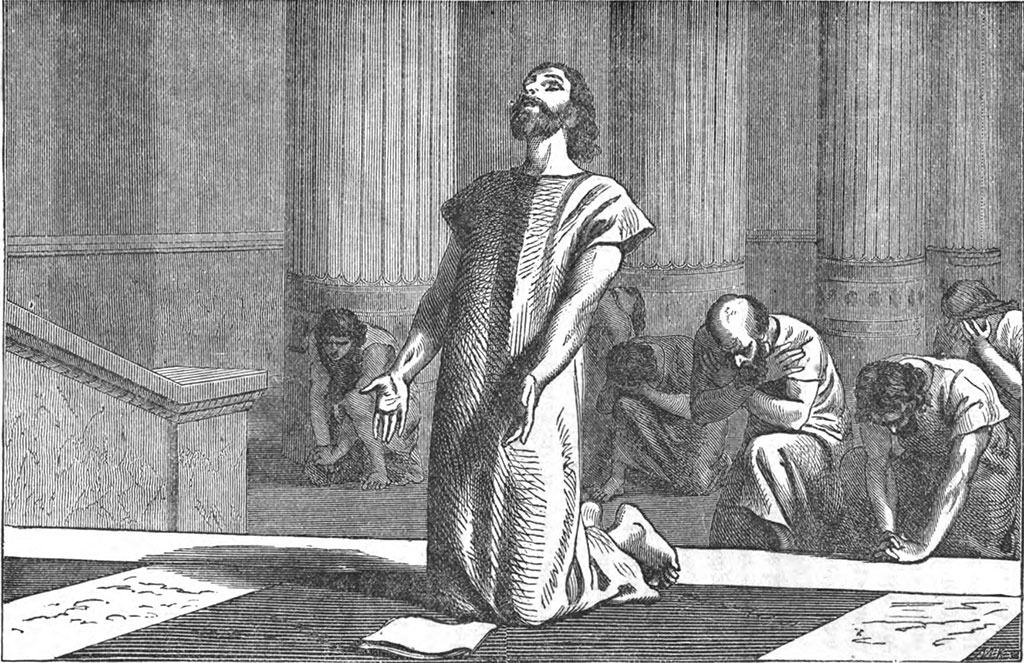
Good King Josiah
Hezekiah did not survive for long after the rebellion against Assyria. His religious reforms were well received by the prophets: “He removed the high places, and broke the pillars, and cut down the Asherah; and he broke in pieces the brazen serpent that Moses had made. for unto those days the children of Israel did offer to it” (II Kings 18:4), but, even with national repentance against the evil of the former kings, the rebellion against Assyria was a disaster that cost the kingdom all its treasures.
It was this penniless kingdom that Hezekiah left to his son, Menashe, who ascended the throne in 697 BCE at the age of 12. With astute diplomatic insight Menashe cultivated his relations with the Assyrians, and during his 55-year reign, the longest of any of the kings of Judah or Israel, the kingdom flourished. Following the exile of the Kingdom of Israel many refugees flocked to Jerusalem expanding the city’s population 10-fold. Menashe cancelled his father’s religious reform, promising freedom of worship to all and reinstated the gods and idols in the temple. Menashe’s son, Amon, ruled for only two years, until he was murdered by unknown elements. The murder was avenged by “Am ha’aretz” – “the people of the land”, a term that appears 14 times in the bible, referring to a special social group within the Kingdom of Judah. Amon’s eight-year old son, Josiah, was crowned in his stead (640 BCE).
Josiah initiated a far-reaching new reform in Judah centered around the “discovery” in the Temple of a book of the Bible, perhaps the book of Deuteronomy, which describes the golden age of the united kingdom of David and Solomon, when the people of Judah and Israel were one. Josiah dedicated his reforms to erasing the worship of foreign gods and focused religious practice on the temple in Jerusalem. The Bible gives a detailed description of the force of Josiah’s reform: “And the king commanded Hilkiah the high priest, and the priests of the second order, and the keepers of the door, to bring forth out of the temple of the LORD all the vessels that were made for Baal, and for the Asherah, and for all the hosts of heaven; and he burned them in the fields of Kidron… And he put down the idolatrous priests… And he brought out the Asherah… and burned it… and stamped it small to powder…And he broke down the houses of the Sodomites… and he broke down the high places of the gates … And he defiled Topheth… And he broke in pieces the pillars… and he burned the high place… And he slew all the priests of the high places” (II Kings, 23). It was bloody, ruthless, and forceful – “And like unto him was there no king before him, that turned to the LORD with all his heart, and with all his soul, and with all his might, according to all the law of Moses; neither after him arose there any like him,” reports the book of Kings. But the biblical text adds, as if trying to explain what is about to happen: “Notwithstanding the LORD turned not from the fierceness of His great wrath, wherewith His anger was kindled against Judah, because of all the provocations wherewith Manasseh had provoked Him.”
Could not Josiah’s repentance save Judah and Jerusalem? The King sent messengers to the prophetess Hulda to see if his actions could turn God away from his anger. Hulda’s message was that it was too late, however she added: “I will gather thee to thy fathers, and thou shalt be gathered to thy grave in peace, neither shall thine eyes see all the evil which I will bring upon this place.” (II Kings 22: 20). It was a divine promise that was not kept.
Could Josiah’s repentance save Judah and Jerusalem? The King sent messengers to the prophetess Hulda to see if his actions could turn God away from his anger
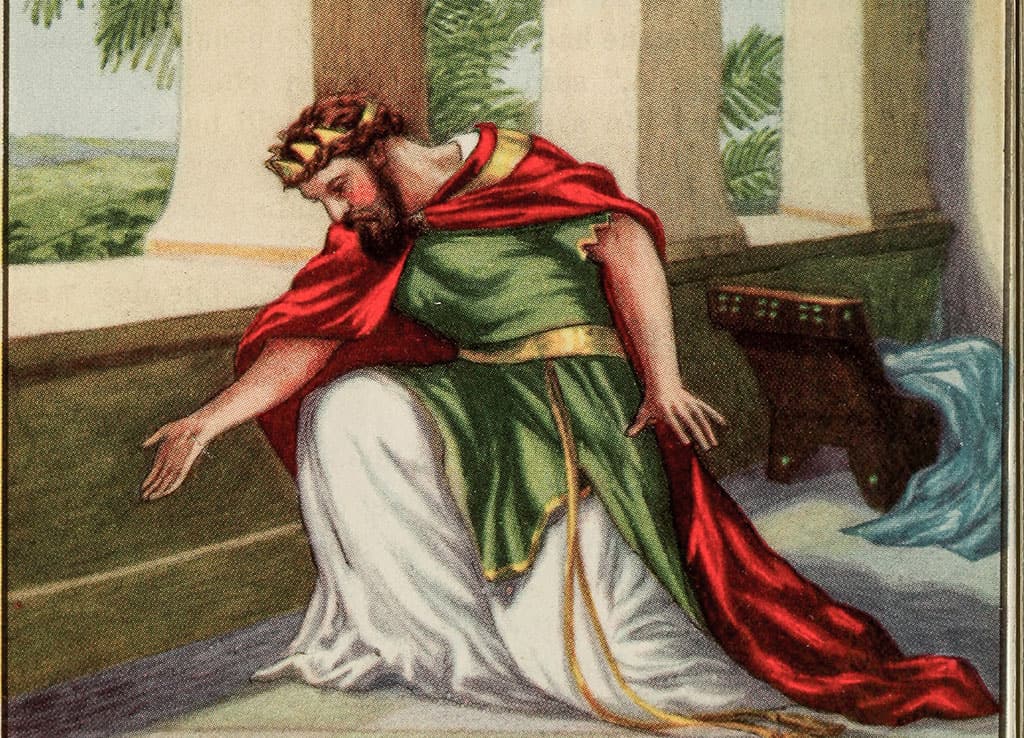
Armageddon
The sudden disappearance of Assyria prompted Josiah to try and take control of the areas of the former kingdom of Israel. The extent of his success is not clear, but the attempt to take over territory that was controlled by Assyria was contrary to the intentions of the Egyptians.
As an aside… after the glowing description of Josiah’s reforms, the Bible adds two verses: “In his days, Pharaoh Necho, King of Egypt went up against the King of Assyria to the river Euphrates; and King Josiah went against him; and he slew him at Megiddo, when he had seen him. And his servants carried him in a chariot dead from Megiddo, brought him to Jerusalem, and buried him in his own sepulcher.”
The narrative is unclear. Why did Josiah set out to do battle with the might of Egypt? He could have ignored the Egyptians at Megiddo and let them continue to the north. From Chronicles we learn that Necho announced that he had no intention of fighting Josiah in battle. Nevertheless, Josiah was killed, and Judah lost its independence.
The book of Kings is silent as to the reason for this. It appears that this was a tragedy of such magnitude, that the author prefers not to mention it. Even Jeremiah, who described Josiah as the Righteous King, does not talk about it.
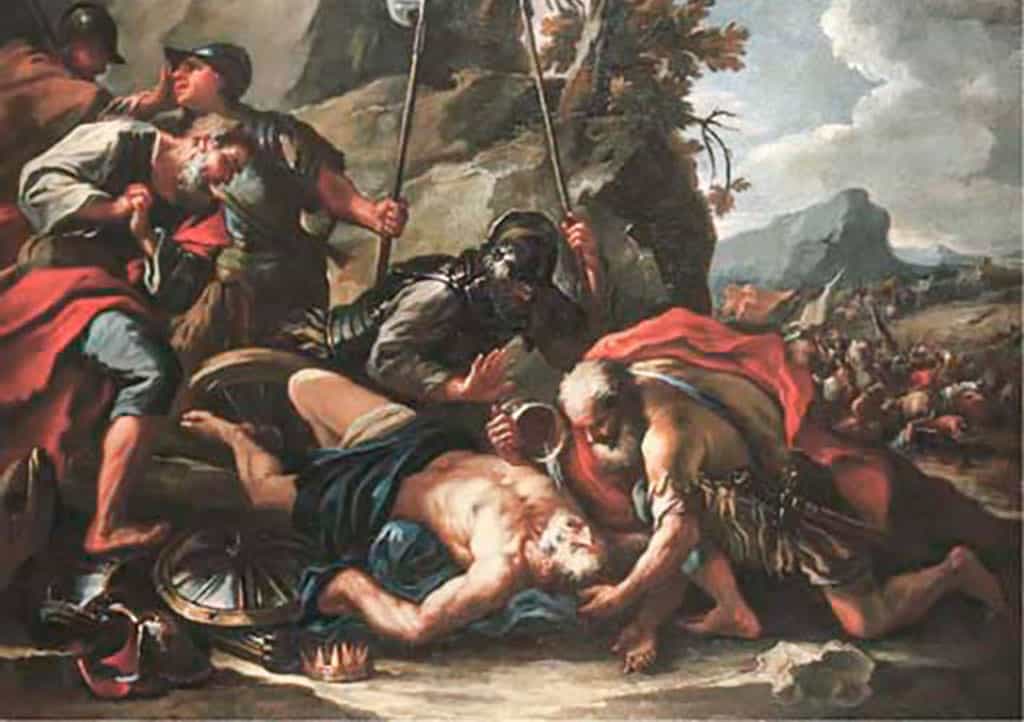
Did Josiah cultivate Hezekiah’s connections with the rising Babylonian kingdom? The book of Isiah reports that the King of Babylonia sent messengers to Hezekiah when he heard that the King was sick. Isiah warned Hezekiah not to ally himself with the Babylonians against the Assyrians, but the connection existed. Could it be that Josiah set out to Megiddo to stop the Pharaoh from coming to the aid of the Assyrians against the Babylonians?
The Book of Kings is silent about the battle between Necho and Josiah. But Chronicles, which was written at a much later date, presents a different version to the dramatic meeting. Josiah set out to battle Necho who asked him to refrain. Josiah positioned his army in the Valley of Megiddo and was then hit by an arrow. Wounded, he was taken to Jerusalem where he died. This is contrary to the description in the Book of Kings where Necho ordered Josiah to appear before him at Megiddo, and then “killed him when he saw him”.
The Bible testifies to Necho’s intentions to take control of the Land of Israel. After Josiah’s death, the people of Jerusalem placed his son Jehoahaz on the throne. He ruled for three months until Necho had him imprisoned, and also fined Judah for going against his wishes. Necho put Eliakim, Josiah’s second son, on the throne, changed his name to Jehoiakim and exiled his brother Jehoahaz to Egypt, where he died (II Kings, Chapter 23). So ends the biblical narrative of the most righteous of the kings of Judah, who reformed the temple and was put to death by the Pharaoh.
The death of Josiah at Megiddo will become the rallying cry for the final battle of Gog and Magog at Har Magedon, which in Greek translates “Armageddon”
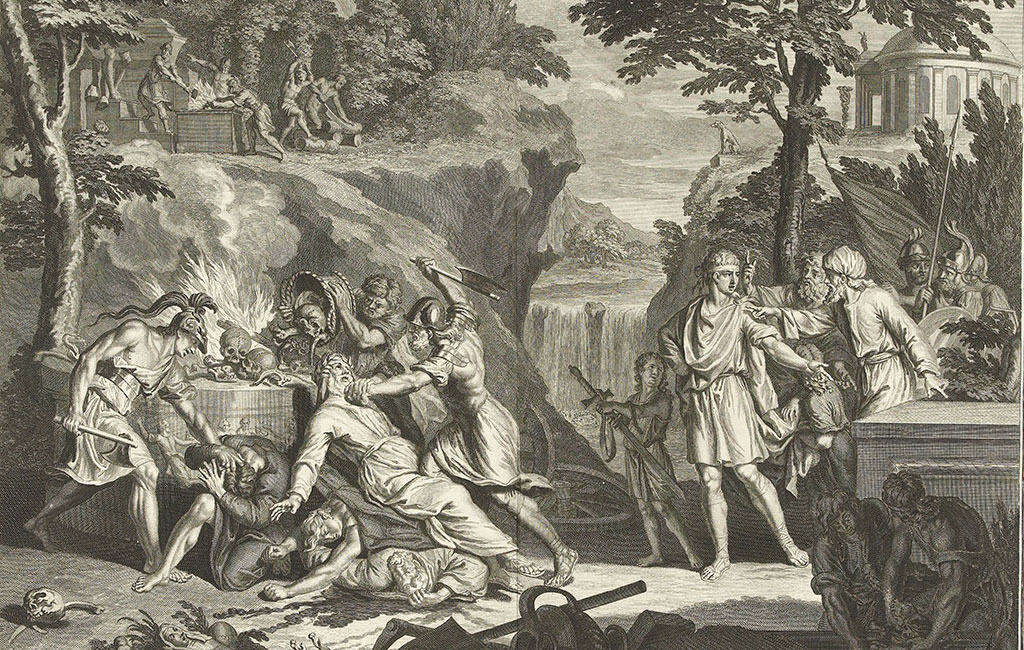
The Apocalypse
The death of the Righteous King was a shock. “…and Jeremiah wept over Josiah, and all the ministers wept over Josiah to this day” (II chronicles, 35). The sages of the Talmud identified Jeremiah’s lament with Chapter four of the Book of Lamentations. The prophet Zephania, son of Kushi, son of Gedaliah, son of Amira the son of Hezekiah also lived in the days of Josiah. According to his genealogy depicted in his short three chapter book he was close related to Hezekiah, and thus also to Josiah. Zephania is the first to describe “the day of the Lord” when those that are not loyal to God will be punished. This motive of the final “scene”, the day of the end of time, is described in detail in the book of Zechariah when “on that day the lamentations in Jerusalem will exceed the lamentations of Hadadrimmon in the Valley of Megiddon.”
Ezekiel expands on this even more, “And the word of the Lord came unto me, saying, Son of man, set thy face against Gog, in the land of Magog, the chief prince of Meshech and Tubal, and prophesy against him. And say, Thus saith the Lord God; Behold, I am against thee, O Gog, the chief prince of Meshech and Tubal: And I will turn thee back, and put hooks into thy jaws, and I will bring thee forth, and all thine army, horses and horsemen, all of them clothed with all sorts of armour, even a great company with bucklers and shields, all of them handling swords: Persia, Ethiopia, and Libya with them; all of them with shield and helmet: Gomer, and all his bands; the house of Togramah of the north quarters, and all his bands: and many people with thee” (Ezekiel 38).
The final battle, against Gog of Magog and all his hordes appears again in John’s book of Revelations, where the forces of good shall gather at “the place that in Hebrew is called Har Magedon” (Revelations 16:16).
The death of Josiah at Megiddo will become the rallying cry for the final battle of Gog and Magog at Har Magedon which in Greek translates “Armageddon”.
Thus, we come full circle. Josiah’s death at Megiddo in 609 BCE is just the opening phase of the eschatological ultimate destiny of humanity, which will end in the Lord’s victory, after which a messiah from the House of David will reappear. The dramatic event in Megiddo, the killing of Josiah in the Assyrian palace, is rooted in Judeo-Christian belief to this day.

